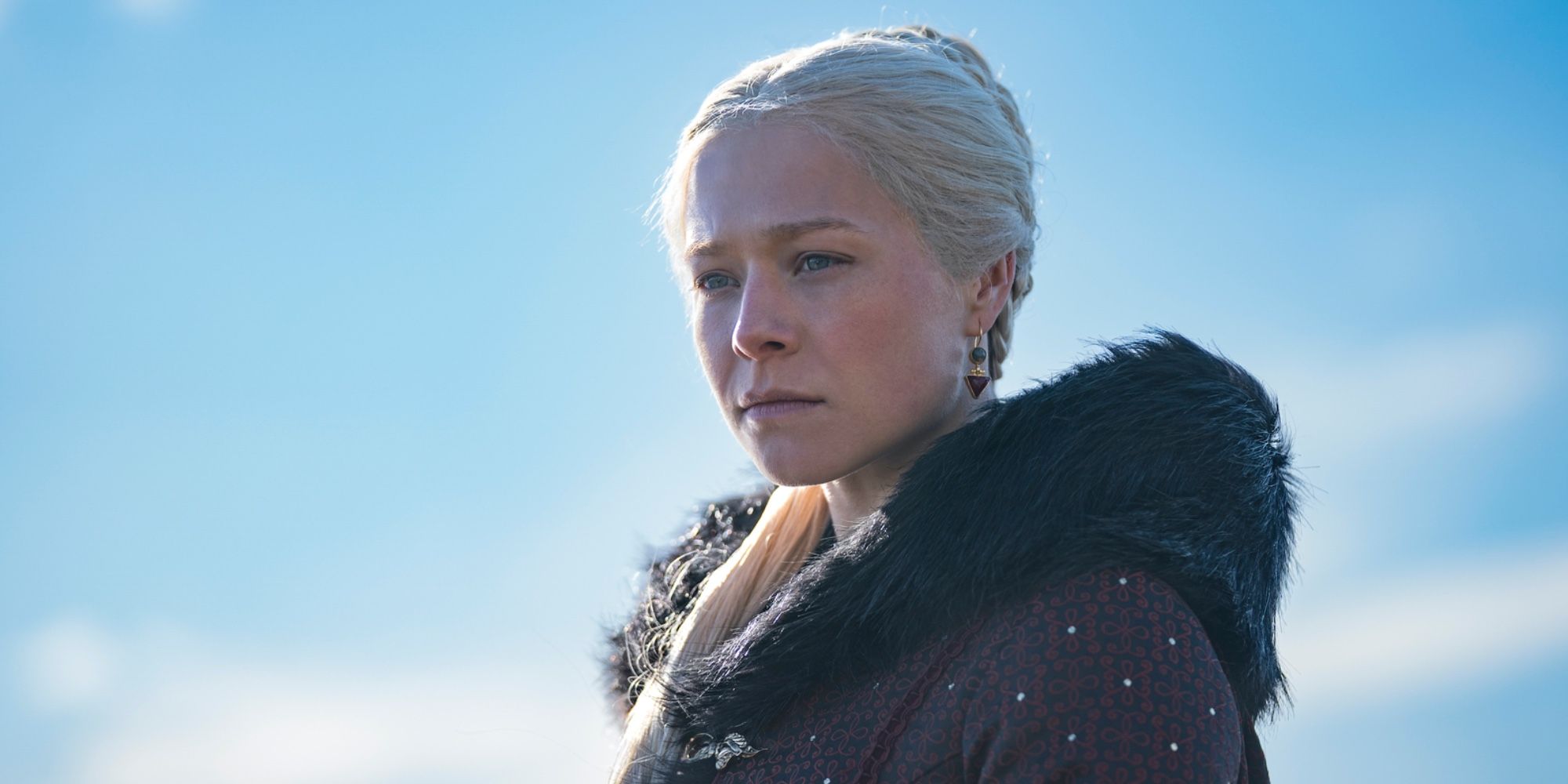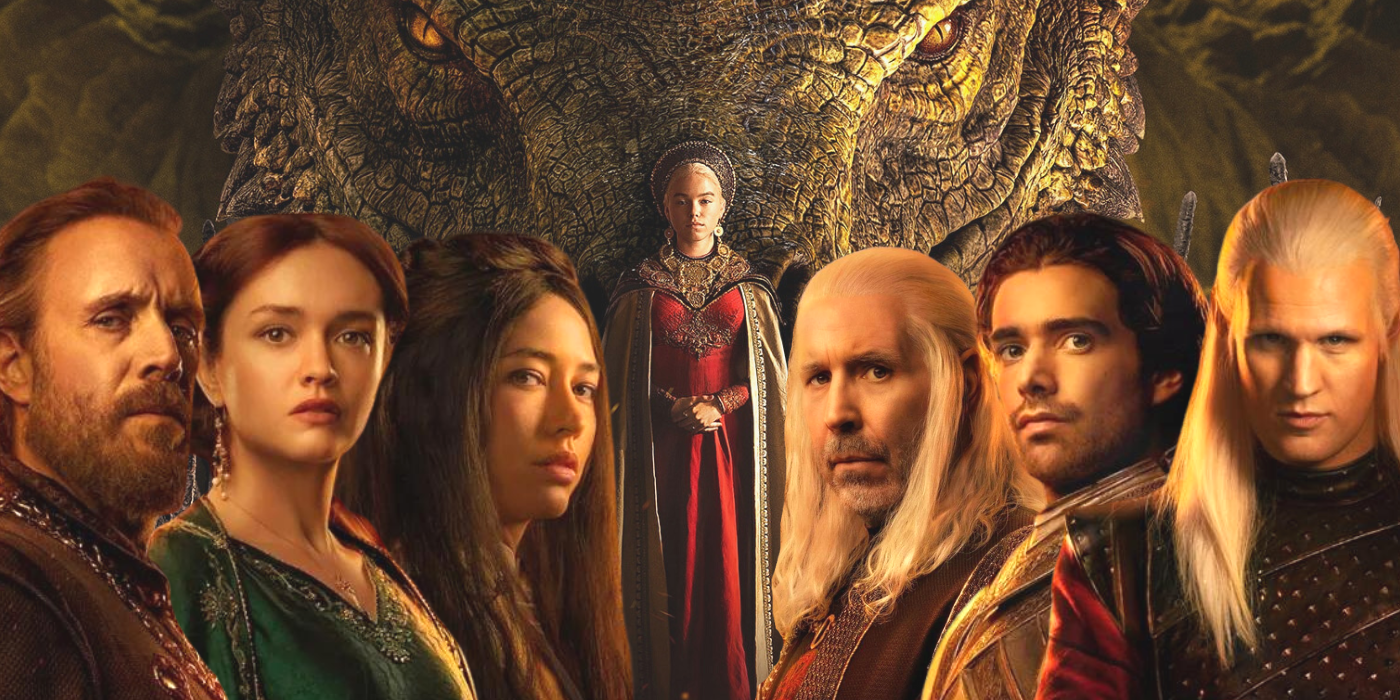House of the Dragon will not depict sexual violence against women on-screen like Game of Thrones, according to writer and executive producer Sara Hess. Based on George R.R. Martin's 2018 novel Fire and Blood, the upcoming prequel series is set 200 years before the events of Game of Thrones and will chronicle the events leading up to the end of House Targaryen, including the civil war of succession known as the Dance of the Dragons. Like its predecessor, House of the Dragon will revolve around the same central conflict: who should occupy the Iron Throne.
Paddy Considine leads the House of the Dragon cast as the benevolent King Viserys I Targaryen, the current occupant of the Iron Throne when the series begins. However, the real conflict does not start to heat up until after the King's death, when Princess Rhaenyra (Milly Alcock/Emma D'Arcy), Viserys' firstborn child and chosen female heir, has her claim to the throne challenged by Prince Aegon (Tom Glynn-Carney), his firstborn son. This sparks the Targaryen civil war at the center of prequel show.
During a recent interview with Vanity Fair, Hess opens up about how House of the Dragon will handle its female characters, especially regarding its depiction of sexual violence. The show's writer and executive producer clarifies that House of the Dragon will not depict sexual violence against women on-screen, unlike Game of Thrones, while one instance will be handled off-screen. Instead, the show will explore "the violence against women that is inherent in a patriarchal system.” Read Hess' full comments below:
I’d like to clarify that we do not depict sexual violence in the show. We handle one instance off-screen, and instead show the aftermath and impact on the victim and the mother of the perpetrator. I think what our show does, and what I’m proud of, is that we choose to focus on the violence against women that is inherent in a patriarchal system.
There are many ‘historical’ or history-based shows that romanticize powerful men in sexual/marriage relationships with women who were actually not of an age to consent, even if they were ‘willing.’ We put that onscreen, and we don’t shy away from the fact that our female leads in the first half of the show are coerced and manipulated into doing the will of adult men. This is done not necessarily by those we would define as rapists or abusers, but often by generally well-meaning men who are unable to see that what they are doing is traumatic and oppressive, because the system that they all live in normalizes it. It’s less obvious than rape but just as insidious, though in a different way. In general, depicting sexual violence is tricky and I think the ways we think about it as writers and creators are unique to our particular stories.
House of the Dragon's approach to violence against women is a stark contrast to that of its predecessor. Game of Thrones was notorious for depicting numerous instances of sexual violence. In fact, the very first episode of Game of Thrones contains a scene in which Daenerys Targaryen (Emilia Clarke) is raped by her Dothraki husband, Khal Drogo (Jason Momoa), on the night of their wedding. Game of Thrones season 5 featured a similarly graphic scene in which Sansa Stark (Sophie Turner) is raped by Ramsay Bolton (Iwan Rheon), also on the night of their wedding. These scenes were often criticized for their gratuitous brutality.
It appears that House of the Dragon has learned from the mistakes of its predecessor and will not be depicting any sexual violence on-screen whatsoever. While violence against women is a very real part of history that arguably should not be overlooked in the fantasy genre, the Game of Thrones prequel show will surely be more careful and thoughtful about how it explores these issues. The wait for House of the Dragon is almost over, as the show premieres later this month on HBO.
House of the Dragon premieres Sunday, August 21 on HBO.
Source: Vanity Fair


